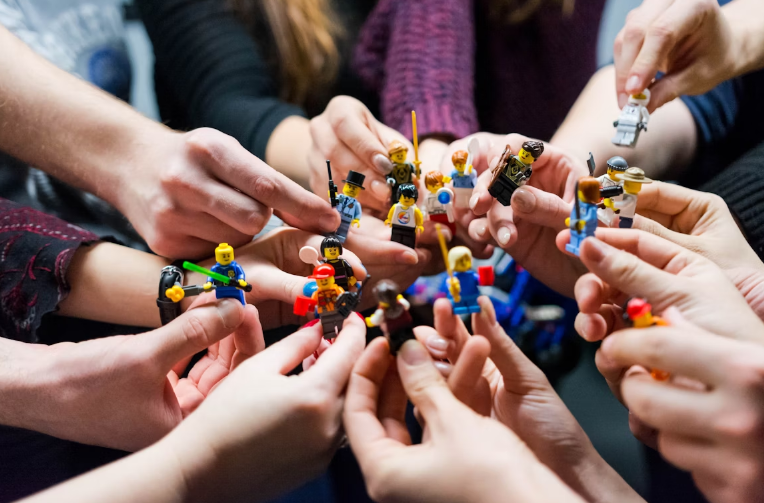Why Team-Building Experiences Increase Employee Satisfaction and Loyalty
Engaging employees in purposeful team-building experiences fosters a collaborative workplace that enhances job satisfaction and strengthens loyalty to the organization. At its core, team-building is about cultivating deeper relationships among coworkers, encouraging teamwork, and creating a shared sense of purpose. When employees feel connected to both their colleagues and the organization's vision, it naturally leads to higher morale, increased productivity, and lower turnover rates.

Understanding the Role of Team-Building
Team-building experiences serve as a foundation for understanding workplace dynamics. These activities allow employees to interact in a setting that differs from the usual office environment, breaking down barriers that might inhibit collaboration. During these experiences, team members can step out of their professional roles and reveal their personalities, interests, and strengths. This new perspective fosters empathy and enhances communication among coworkers, which is vital for any successful business.
Activities specifically designed for team-building highlight the importance of skills such as problem-solving, negotiation, and planning. Investing in team-building is more than a fun day out; it shows employees that their needs and preferences are considered, positively influencing their view of the company. Taking time for effective team-building planning brings unity, fun, and improves communication. Organizations that recognize the value of time spent on team-building see the benefits in employee engagement, resulting in a more committed workforce. Employees who feel valued and connected are far more likely to remain loyal to their organization, translating to reduced hiring costs and retaining talent longer.
Enhancing Communication Through Shared Experiences
One of the most important benefits of team-building activities is the improvement of communication skills among team members. Each exercise designed for team-building promotes interaction, whether through cooperative problem-solving or group challenges. When employees share experiences, they develop a stronger rapport, which leads to open lines of communication in their daily tasks. This has a profound effect on collaboration, as clarity and trust are established. Improving communication skills cultivates an atmosphere of collaboration in which feedback can flow freely.
Employees can voice concerns, share ideas, and discuss solutions without fear of judgment. When employees know how to communicate efficiently, misunderstandings are reduced, paving the way for a more harmonious work environment. As a result, both employee satisfaction and productivity increase, significantly contributing to a thriving workplace culture. Transparent communication channels foster remote teams’ cohesiveness by ensuring everyone is on the same page. Virtual team-building grasps the attention of remote employees, often left out due to geographical barriers. Engaging in shared activities nurtures a sense of community, making it easier to collaborate across locations.
Building Trust Among Colleagues
Trust is a cornerstone of any successful organization, and team-building activities play an important role in nurturing that trust among employees. Activities tailored for team-building create opportunities for employees to rely on one another, allowing them to witness their colleagues’ problem-solving skills in action.
The process of working through challenges together fosters trust as team members learn to depend on one another’s strengths while understanding their weaknesses. As trust grows, employees become more comfortable taking risks and sharing innovative ideas. They are less likely to withhold their thoughts due to fear or uncertainty.
This environment empowers and encourages creativity and experimentation, driving innovation within the organization. Employees who trust their teammates will feel secure in their position and are more likely to stay engaged and invested in the company's success.
Due to the nature of team-building activities, which often require collaboration under pressure, individuals develop a stronger bond that extends beyond the event itself. As these connections strengthen, trust forms, allowing employees to work more efficiently together even in high-pressure situations. When employees trust one another, the result is loyalty, both to each other and to the organization.
Cultivating a Positive Work Environment
Team-building experiences significantly contribute to cultivating a positive work environment. When team members actively engage with their colleagues outside of their normal routines, they often return to work with a more upbeat attitude. A fun team-building day can infuse the workplace with energy and enthusiasm, translating into improved morale.
The laughter and enjoyment shared during these experiences create lasting memories that employees can refer back to with fondness. A workplace that prioritizes team bonding indicates to employees that their well-being matters. Employees who see that their organization values their happiness are more likely to reciprocate that affection with loyalty and hard work.
Such environments see lower turnover rates, which can lead to substantial cost savings associated with hiring and training new workers. When organizations embrace core values shaped by team engagement and bonding, positive energy flows throughout the company. This cultural shift allows employees to thrive, as they feel supported both personally and professionally, which in turn fosters an environment of mutual respect and collaborative achievement.
Team-building activities can uncover hidden talents and strengths within employees that may otherwise go unnoticed. These experiences encourage creative problem-solving, as employees collaborate in ways that challenge conventional thinking. Stronger interpersonal relationships reduce workplace conflict and increase cooperation on challenging projects. Recognizing team successes during these activities reinforces a culture of appreciation and motivation.

Leading to Long-Term Employee Loyalty
The benefits of team-building extend far beyond immediate satisfaction. As employees develop closer relationships with their peers, they are more likely to establish loyalty to the organization. This loyalty transforms into long-term retention, where employees feel a sense of belonging and purpose within their teams. Loyal employees are advocates for their company. They tend to recommend their organization to others, share positive experiences on social media, and contribute to a solid employer brand.
These loyalist employees often take on additional responsibilities and demonstrate a greater sense of ownership. Their investment in the organization is a testament to the connections forged through shared experiences.
Leaders recognize that valuing team-building and enhancing employee engagement directly contributes to a healthier, more positive work culture. Companies focusing on retaining talent benefit from an array of advantageous outcomes, including better performance, higher employee morale, and an increase in organizational value.
Through team-building exercises, firms may cultivate a culture based on communication, trust, and shared experiences, which pays off handsomely in the shape of contented and devoted workers. As companies strive to invest in their workforce, embracing the concept of team-building is a vital step toward a more united and successful future.





